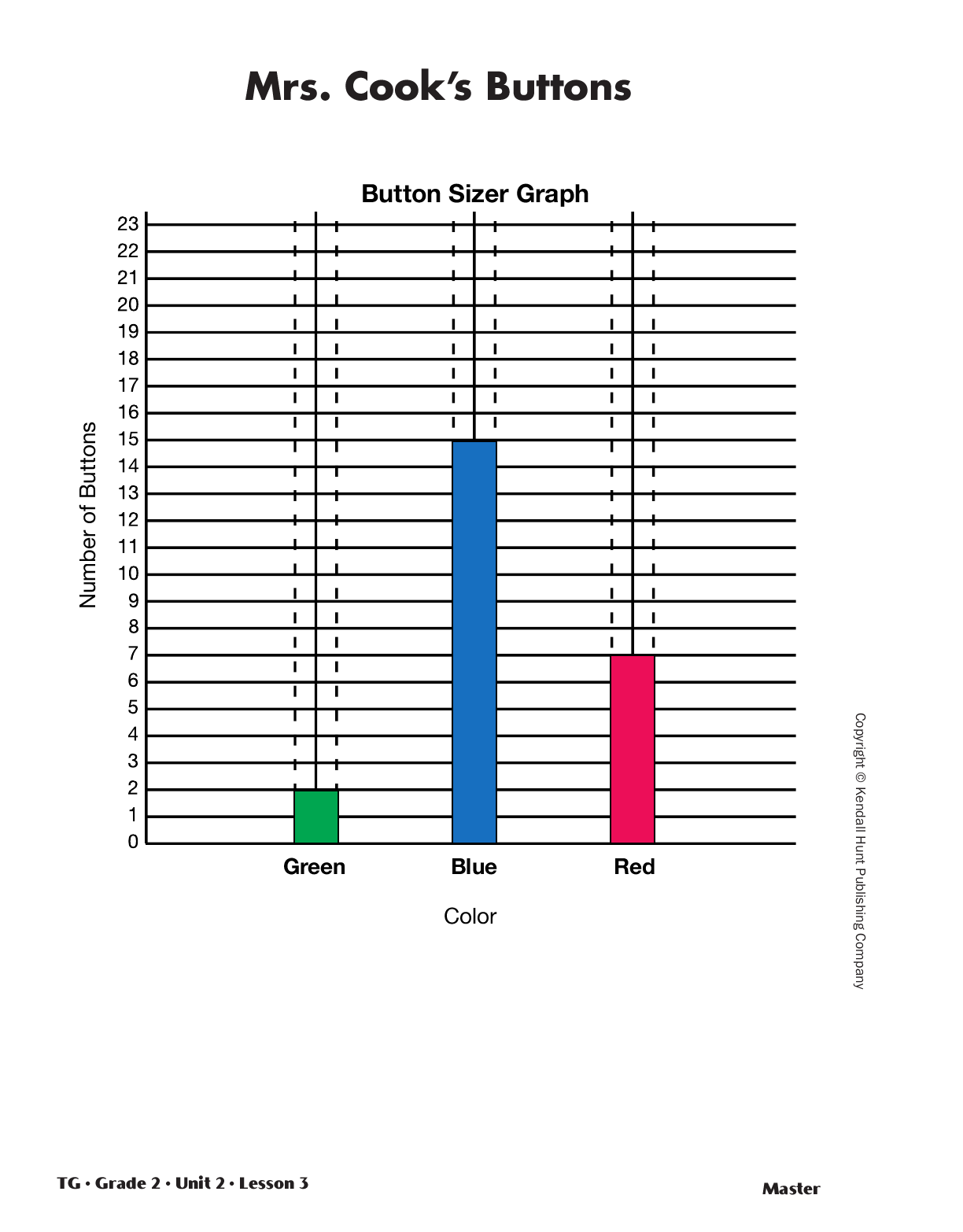Button Sizer
Est. Class Sessions: 1–2Extension
Impossible, Unlikely, Likely, Certain. Show the display of the Mrs. Cook’s Buttons Master graph. Write the words “impossible,” “unlikely,” “likely,” and “certain” across the board in that order. Explain that they can be used to describe whether something will happen. Ask students whether they have ever seen or heard these words before, and if they have, what they think the words mean. Write student comments under each of the words. Give the students a few minutes to discuss the words and consider the different meanings volunteered. Here are some sample answers:
Impossible: “I am sure it can’t happen.”
Unlikely: “It probably won’t happen” or “It won’t
happen very often.”
Likely: “It probably will happen” or “It will happen
most of the time.”
Certain: “I am sure it will happen.”
Tell students to imagine that Mrs. Cook has the number of buttons shown on the graph and all the buttons are exactly the same size, but different colors. That way, they all feel the same to the touch. Mrs. Cook puts all the buttons in a tin can. There is nothing else in the tin can. She asks one of her students, Janie, to close her eyes, reach into the can of buttons, and pull out the first one she touches.
Say:
Be aware that not all events can be described well by these words. For example, pulling out a red button is not a likely event, since there are more than twice as many non-red buttons than red buttons. On the other hand, it is not unlikely—you wouldn’t be surprised if Janie pulled out one of the 7 red buttons. In later grades, students will learn to use numbers (probabilities) when they want to be more precise about how likely events are to happen. The discussion here is just an introduction—they will have more opportunities to become familiar with the terms of probability.
Ask students to brainstorm a list of other events that are likely, unlikely, certain, and impossible.
Sample impossible events:
I will jump to the moon.
My cat will read me a book.
Sample certain events:
The sun will come up tomorrow.
An uncooked egg will break if I throw it down.
They might not agree on how to classify some events. For example, in one class a student was certain that “I will do my homework tonight.” It was difficult for her to imagine that unforeseen circumstances such as a power failure, illness, etc., could prevent that. Words such as “very likely” and “very unlikely” might help the class reach a consensus.













